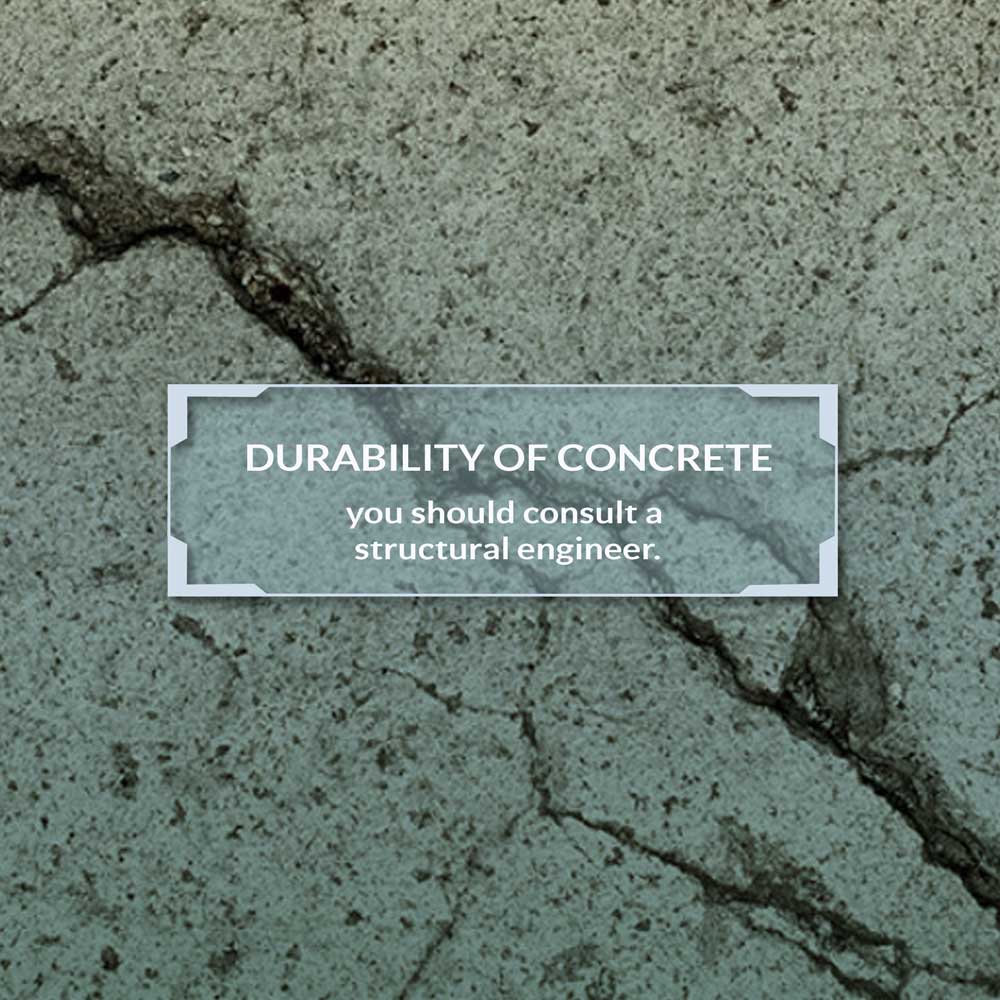Table of Contents
What is Durability?
Durability is defined as the ability for something to last a long time without significant deterioration. Durable materials help the environment by conserving resources, reducing waste and the environmental impacts of repair and replacement. For instance, cheaper building materials require the production of replacement material. This depletes natural resources, along with producing air and water pollution.
Is Concrete Durable?
Concrete is durable. Concrete resists weathering action, chemical attack, and abrasion while maintaining its desired engineering properties. This is also varied because different strengths of concrete possess different degrees of durability, depending on the exposure environment and the properties desired.
The design service life of most buildings is usually 30 years, with many buildings often lasting 50 to 100 years. However, due to the durability of concrete and masonry buildings, they are mostly demolished due to functional obsolescence rather than deterioration. Concrete can withstand nature’s normal deteriorating mechanisms as well as natural disasters.
Durability Specifics
High Humidity and Rain
Concrete contains little to no organic content; therefore, it is resistant to deterioration dur to rot or rusting in hot, humid climates. Moisture can only enter a building through joints between concrete elements. However, even if moisture does enter through joints, it will not damage concrete.
Ultraviolet Resistance
Solar radiation, especially the ultraviolet portion can damage building materials. However, it does not damage concrete. Using colored pigments in concrete retains the color in aesthetic elements (like walls or floors) long after paints have faded due to the sun’s effects.
Inedible
Vermin and insects cannot destroy concrete because it is inedible. Softer materials would be inedible but still provide for insects. Due to the hardness of concrete, vermin and insects will not bore through concrete.
Resistance to Freezing and Thawing
The most potentially destructive weathering factor is freezing and thawing while the concrete is wet, particularly in the presence of deicing chemicals. Deterioration is caused by the freezing of water and subsequent expansion in the paste.
However, through the proper use of a system of microscopic air bubbles in the mixture, concrete is highly resistant to freezing and thawing. These microscopic air bubbles within the concrete accommodate the expansion of water into ice and thus relieve the internal pressure generated.
Chemical Resistance
Concrete is resistant to most natural environments and many chemicals. Concrete is used for the construction of wastewater transportation and treatment facilities because of its ability to resist corrosion caused by the extremely aggressive contaminants in the wastewater stream as well as the chemicals added to treat these waste products.
Resistance to Sulfate
Considerable amounts of sulfate in soil or water can attack and destroy any concrete that is not intelligently designed. Sulfates can attack concrete by reading with hydrated compounds in the hardened cement paste. These reactions can induce sufficient pressure to slowly cause disintegration of the concrete.
Therefore, concrete with a low water to cementitious material ration should be used along with cements or cementitious material combinations specially formulated for sulfate environments.
Seawater Exposure
Concrete has been used in seawater exposures for decades with excellent performance. Sulfates and chlorides in seawater require the use of low permeability concrete to minimize steel corrosion and sulfate attack.
Abrasion Resistance
Concrete is resistant to the abrasive effects of ordinary weather. Examples of this would be rapidly moving water, floating ice, or areas where steel studs are allowed on tires.
Conclusion
Although this is not an exhaustive list, it can be clearly seen that the durability of concrete is extensive. In fact, concrete is one of the best materials used in structural engineering for different projects. More importantly, the different strengths of concrete allow for wide applications of use. It is certainly one of the best materials to consider in your project!
Are you interested in using concrete for durability in your project? Are you unsure of what type of concrete to include? Contact Sabio Engineering Services! Our structural engineers are specially trained in concrete design and analysis to help with your project needs!
Contact us at (929) 381-0030 or visit our website.


